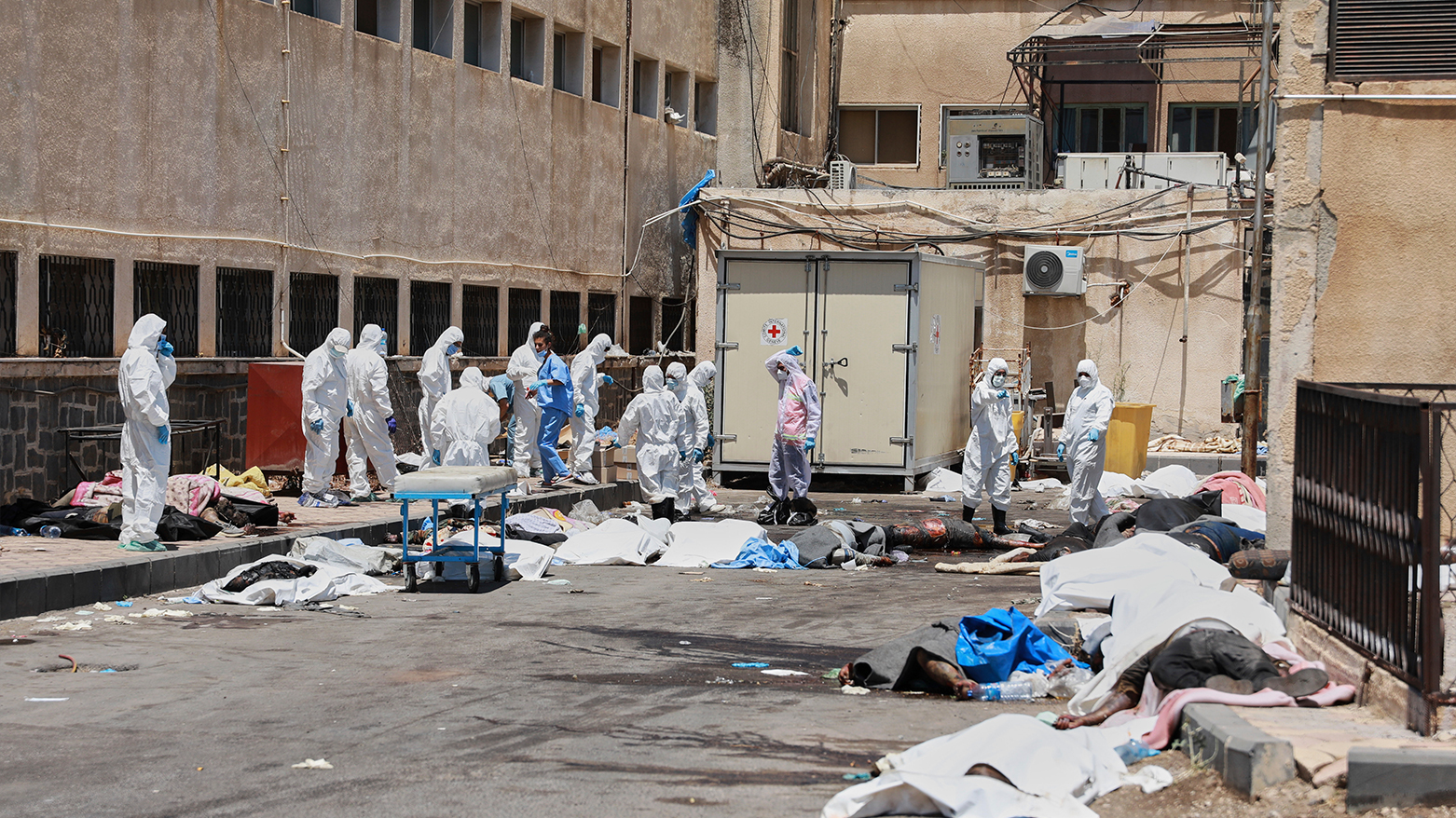SOHR: Sweida Death Toll Nears 2,000, Cites Extrajudicial Execution of 765 Druze Civilians
SOHR reports the death toll in Syria's Sweida escalation is nearly 2,000, including 765 civilians, mostly Druze, extrajudicially executed by state forces. The monitor calls for an international investigation amid growing demands for federalism and accountability.

ERBIL (Kurdistan24) – In a harrowing new report detailing the scale of recent violence in southern Syria, the Syrian Observatory for Human Rights (SOHR) announced on Thursday that the death toll since the beginning of the latest escalation in Sweida province has climbed to nearly 2,000 people. The human rights monitor has documented a litany of horrific crimes, including the extrajudicial execution of 765 civilians, mostly from the Druze community, by government forces, prompting the organization to call for the formation of an independent international investigation committee to address what it describes as war crimes.
For over 40 days, SOHR has been meticulously documenting the victims of what it termed a "savage invasion" by governmental forces and allied Bedouin tribesmen that swept across the province between July 13 and July 20.
The organization reported that its teams continue to highlight horrific crimes against civilians, including forcible displacement, the burning of homes and shops, kidnappings, desecration of bodies, and sectarian-based massacres.
According to the latest figures released by the Observatory, the total number of fatalities in armed clashes, bombardments, executions, and Israeli airstrikes across Syria since the escalation began on July 13 has reached 1,990.
The monitor provided a detailed breakdown of the casualties, specifying that 1,490 of the victims were from Sweida province alone.
The fatalities include 725 people from Sweida, the vast majority from the Druze community, among them 167 civilians which included 21 children and 57 women.
The clashes also resulted in the deaths of 437 members of the Syrian Ministry of Defence and general security forces, 40 Bedouin tribesmen from Sweida, and two media activists.
SOHR also documented the deaths of 15 members of the ministries of defence and interior in Israeli airstrikes, as well as three other individuals killed in an Israeli strike on the Ministry of Defence headquarters in Damascus.
Most alarmingly, the report details the extrajudicial execution of 765 people, including 69 women, 15 children, and an elderly man, by members of the Syrian ministries of defence and interior and their auxiliary forces.
The victims of these executions included 20 members of the medical staff of Sweida National Hospital. SOHR also reported that three civilians from Bedouin tribes, including a woman and a child, were extrajudicially executed by gunmen from the Druze sect.
The Syrian Observatory for Human Rights concluded its report by renewing its commitment to documenting and highlighting all violations against civilians in Syria.
Violence Fueling Political Fragmentation
These staggering new figures arrive at a moment of profound crisis for Syria, where escalating persecution of minority communities is fueling increasingly organized political movements that challenge the central government's authority.
As Kurdistan24 has previously reported, the violence in Sweida is part of a broader pattern of attacks that have also targeted Alawites and Christians in recent months.
In response, a new media campaign was recently launched by the Western Syria Development Organization (WSD), a non-governmental body, to cast an international spotlight on these atrocities.
The organization aims to provide documented evidence through field reports and survivor testimonies to build global awareness and pressure for an end to the persecution.
According to the WSD, the Druze-majority city of Sweida remains completely besieged, with 33 villages reportedly taken over by hostile forces.
The violence has served as a catalyst for political action. Earlier this week, a group of Syrian politicians and activists from the coastal region announced the formation of the “Political Council for Central and Western Syria.”
This new body, representing the Alawite-majority provinces, has explicitly put forth a vision of federal democracy as the only viable solution to end the country’s conflicts, branding the current ruling authority in Damascus an “illegitimate and terrorist system.”
Damascus's Centralist Vision Clashes with Reality on the Ground
This push for decentralization from minority communities stands in stark contrast to the official position of the Syrian government. President Ahmed al-Sharaa has unequivocally rejected any possibility of the country's partition, labeling calls for division as "impossible" and a product of "political ignorance."
While he has acknowledged that government forces committed abuses in Sweida and promised accountability, his administration remains firmly committed to a strong, centralized state.
This centralist vision has been directly challenged not only by the newly formed Alawite council but also by a landmark conference held in Hasakah, where representatives from Syria’s diverse communities, including prominent Druze and Alawite religious leaders, collectively endorsed a decentralized, federal state.
The Syrian government’s reaction to that gathering was swift and severe, with state media condemning it as an attempt to "fragment the country."
The ongoing violence documented by SOHR and the political fissures it has exposed are compounded by a long and dark history of state-sponsored atrocities and impunity in Syria.
The head of the country’s newly established commission for missing persons recently stated that the number of people who vanished during decades of Assad family rule and the subsequent civil war could exceed 300,000.
As the new SOHR report makes devastatingly clear, the patterns of violence and lack of accountability continue, fueling the very fears and grievances that are now driving calls for international justice and a fundamental restructuring of the Syrian state.
